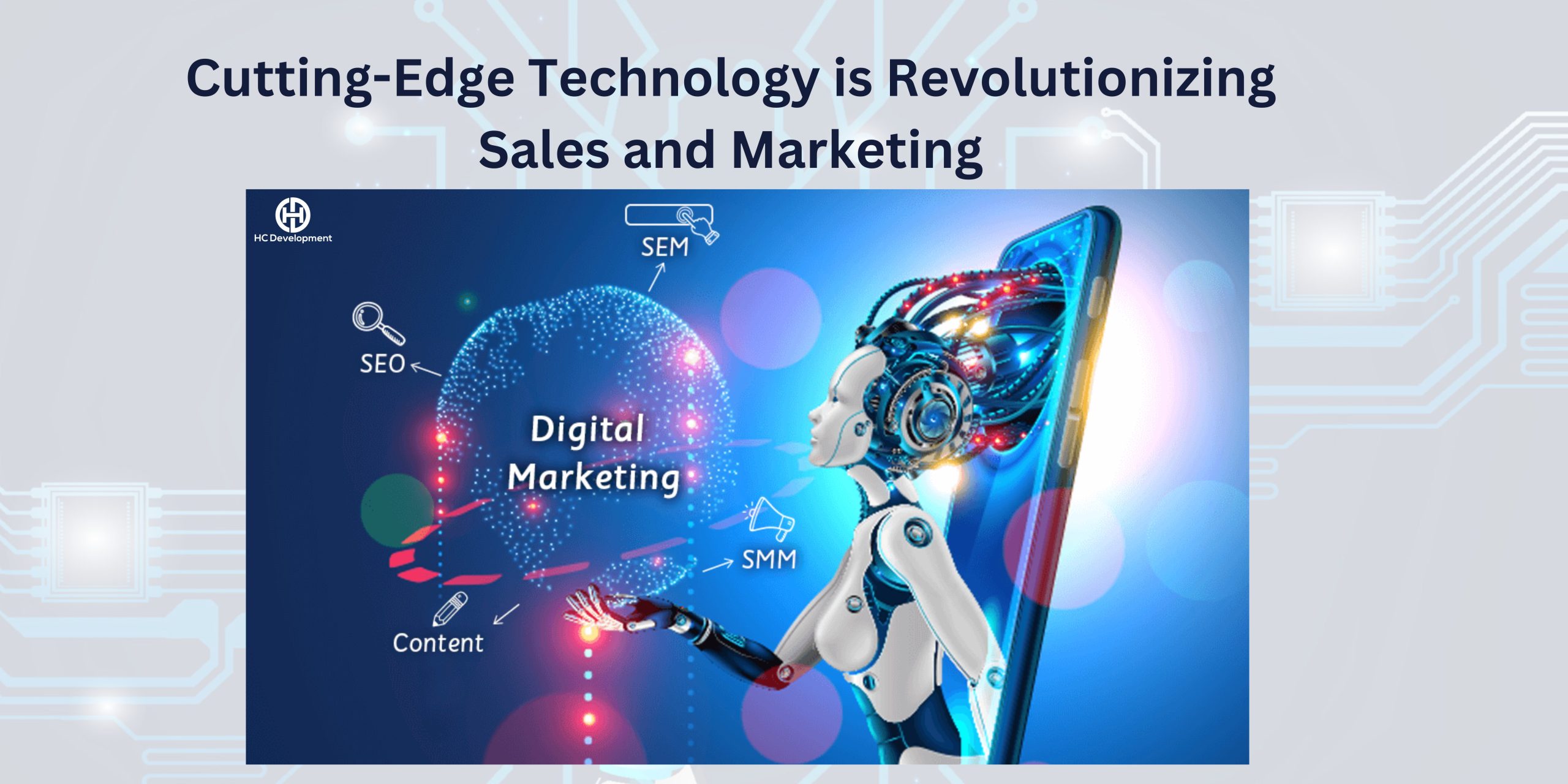Unleashing AI Power: How Cutting-Edge Technology is Revolutionizing Sales and Marketing
Artificial Intelligence (AI) is no longer a concept of the future; it is a reality that is transforming the way businesses operate, particularly in sales and marketing. AI-driven tools and techniques are enabling companies to reach new heights in customer engagement, personalization, and efficiency. As competition intensifies across industries, leveraging AI for marketing and sales is becoming not just an option, but a necessity for sustained success.
In this article, we will delve into how AI is revolutionizing marketing, the key benefits it offers, and practical ways to implement AI strategies to boost sales. Whether you’re a seasoned marketing expert or a student exploring the future of marketing, this comprehensive guide will provide you with valuable insights on the transformative power of AI.
1. Understanding AI in Marketing: A Primer
What is AI in Marketing?
Artificial Intelligence in marketing refers to the use of advanced algorithms and machine learning techniques to analyze data, predict consumer behavior, automate processes, and optimize marketing efforts. AI can analyze vast amounts of data far more quickly and accurately than humans, providing insights that are crucial for making informed marketing decisions.
Key Points:
Data Analysis: AI tools can sift through large datasets to identify patterns and trends that inform marketing strategies.
Personalization: AI allows for highly personalized marketing campaigns by analyzing individual consumer behaviors and preferences.
Automation: Routine marketing tasks like email campaigns, social media posting, and ad placements can be automated with AI, freeing up time for more strategic activities.
Why It Matters:
Understanding the basics of AI in marketing is the first step towards implementing these powerful tools in your own strategy. AI is not just a trend; it is a transformative force that is here to stay.
2. The Evolution of AI in Marketing: From Hype to Reality
A Brief History of AI in Marketing
AI in marketing has evolved from simple algorithms used for basic data analysis to sophisticated systems that can predict customer behavior, create personalized content, and even interact with customers in real-time. Initially, AI was seen as a futuristic concept with limited practical application, but advances in technology have made AI accessible and indispensable in modern marketing.
Key Points:
Early AI: Initially, AI was limited to rule-based systems that could perform specific tasks like keyword matching in search engines.
Machine Learning: The advent of machine learning enabled AI systems to improve over time by learning from data.
Deep Learning: Deep learning algorithms have further advanced AI, allowing for more complex tasks such as image and voice recognition.
Why It Matters:
Understanding the evolution of AI helps marketers appreciate its current capabilities and anticipate future developments. As AI continues to evolve, staying informed about its progress is crucial for maintaining a competitive edge.
3. Personalization at Scale: How AI Enhances Customer Experience
The Power of Personalized Marketing
The potential of artificial intelligence (AI) to provide mass-customized experiences is among its most important benefits for marketers. Traditional marketing methods often rely on generalized messages aimed at broad audiences, but AI allows for the creation of highly personalized content tailored to individual preferences.
Key Points:
Customer Segmentation: AI can analyze data to create detailed customer segments based on behavior, demographics, and preferences.
Dynamic Content: AI-driven tools can generate personalized content in real-time, ensuring that customers receive messages that resonate with them.
Predictive Analytics: AI can predict what products or services a customer is likely to be interested in, allowing for targeted marketing efforts.
Why It Matters:
Customization is essential for fostering enduring client relationships and increasing revenue. Businesses can greatly improve the customer experience by using AI to send the appropriate message to the right client at the right time.
4. AI-Driven Customer Insights: Turning Data into Actionable Strategies
Unlocking the Power of Data
In today’s data-rich environment, businesses have access to more information about their customers than ever before. However, without the right tools, this data can be overwhelming and difficult to act upon. AI excels at analyzing complex datasets, uncovering insights that can inform marketing strategies and drive sales.
Key Points:
Behavioral Analysis: AI can analyze customer behavior across various touchpoints, providing insights into their purchasing journey.
Sentiment Analysis: AI tools can analyze social media and other forms of communication to gauge customer sentiment towards a brand or product.
Trend Identification: AI can identify emerging trends and shifts in consumer behavior, allowing businesses to adapt their strategies proactively.
Why It Matters:
Turning raw data into actionable insights is essential for any successful marketing strategy. AI provides the tools needed to make sense of complex data, enabling businesses to make informed decisions that boost sales and customer satisfaction.
5. AI-Powered Automation: Streamlining Marketing Operations
Efficiency Meets Effectiveness
AI-powered automation is transforming marketing by streamlining operations, reducing costs, and increasing efficiency. From automating repetitive tasks to optimizing campaigns in real-time, AI allows marketers to focus on strategy rather than execution.
Key Points:
Campaign Automation: AI can automate the deployment and management of marketing campaigns, ensuring optimal timing and delivery.
Lead Scoring: AI-driven tools can analyze leads to determine their likelihood of conversion, allowing sales teams to focus on the most promising prospects.
Ad Optimization: AI can continuously optimize digital ad campaigns by analyzing performance data and adjusting parameters for maximum ROI.
Why It Matters:
Automation powered by AI not only increases efficiency but also improves the effectiveness of marketing efforts. By automating routine tasks, businesses can focus on innovation and strategy, driving better results and higher sales.
6. Enhancing Customer Interaction with AI: The Role of Chatbots and Virtual Assistants
Revolutionizing Customer Engagement
AI-driven chatbots and virtual assistants are revolutionizing the way businesses interact with customers. These tools provide instant, personalized responses to customer inquiries, improving the overall customer experience and increasing the likelihood of conversion.
Key Points:
24/7 Availability: AI-powered chatbots can provide customer support around the clock, ensuring that customers receive timely assistance.
Personalized Responses: Chatbots can use data to provide personalized responses based on previous interactions and customer preferences.
Efficiency: Chatbots increase overall efficiency by taking care of basic enquiries, freeing up human agents to concentrate on more complicated problems.
Why It Matters:
Enhancing customer interaction is crucial for building strong relationships and boosting sales. AI-driven chatbots and virtual assistants provide a seamless, efficient, and personalized customer experience that can significantly improve conversion rates.
7. AI and Predictive Analytics: Recognizing Needs of Customers
Predicting the Future
One of the most effective uses of artificial intelligence in marketing is predictive analytics. By analyzing historical data, AI can predict future customer behavior, allowing businesses to anticipate needs and tailor their marketing strategies accordingly.
Key Points:
Sales Forecasting: AI can predict future sales trends, helping businesses allocate resources effectively.
Product Recommendations: Predictive analytics can identify products that customers are likely to purchase, enabling personalized upselling and cross-selling strategies.
Churn Prediction: AI can identify customers at risk of churning, allowing businesses to take proactive measures to retain them.
Why It Matters:
Anticipating customer needs is key to staying ahead of the competition. Predictive analytics powered by AI enables businesses to be proactive rather than reactive, leading to higher customer satisfaction and increased sales.
8. Ethical Considerations in AI Marketing: Balancing Innovation and Responsibility
The Ethics of AI
As AI becomes increasingly integrated into marketing strategies, ethical considerations must be taken into account. Issues such as data privacy, transparency, and algorithmic bias are critical to maintaining consumer trust and ensuring that AI is used responsibly.
Key Points:
Data Privacy: Companies need to make sure that consumer data is managed safely and in accordance with privacy laws.
Transparency: Customers should be informed about how AI is being used to collect and analyze their data.
Bias in AI: Efforts must be made to prevent bias in AI algorithms, which can lead to unfair treatment of certain customer groups.
Why It Matters:
Balancing innovation with responsibility is crucial for the long-term success of AI in marketing. By addressing ethical concerns, businesses can build trust with their customers and avoid potential legal and reputational risks.
9. The Future of AI in Marketing: Trends to Watch
What’s Next for AI?
As AI technology continues to evolve, new trends are emerging that will shape the future of marketing. From advanced personalization techniques to AI-driven content creation, the possibilities are endless.
Key Points:
Hyper-Personalization: AI will enable even more precise targeting and personalization, creating highly customized customer experiences.
AI-Generated Content: Advances in AI will allow for the creation of content that is indistinguishable from human-produced material.
Voice Search Optimization: Voice search optimization will become more crucial as voice-activated gadgets proliferate.
Why It Matters:
Keeping a competitive edge requires staying ahead of trends. By keeping an eye on emerging AI trends, businesses can position themselves for success in the rapidly changing marketing landscape.
10. Implementing AI in Your Marketing Strategy: Practical Steps
Getting Started with AI
Implementing AI in your marketing strategy may seem daunting, but with the right approach, it can be a smooth and rewarding process. Here are a few doable actions to get you going.
Key Points:
Assess Your Needs: Determine which aspects of your marketing plan AI can most effectively support.
Choose the Right Tools: Choose AI solutions that are simple to integrate into your current systems and that support your company objectives.
Train Your Team: Ensure that your team is equipped with the skills and knowledge needed to leverage AI effectively.
Monitor and Adjust: Continuously monitor the performance of AI-driven initiatives and make adjustments as needed to optimize results.
Why It Matters:
Implementing AI effectively requires careful planning and execution. By following these practical steps, businesses can harness the power of AI to boost sales, improve customer satisfaction, and stay ahead of the competition.
Conclusion
Artificial Intelligence is revolutionizing the future of marketing landscape, offering unprecedented opportunities for businesses to boost sales and enhance customer engagement. From personalization and automation to predictive analytics and customer interaction, AI provides the tools needed to stay competitive in a rapidly evolving market.
By understanding the benefits of AI, addressing ethical considerations, and implementing practical strategies, businesses can unlock the full potential of AI and position themselves for long-term success. AI-powered marketing is the wave of the future.
To know more about Business Growth and Strategy Click Here
Subscribe : Youtube




